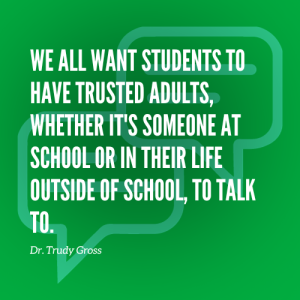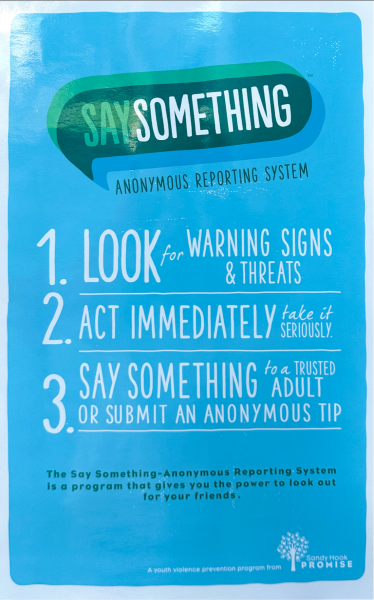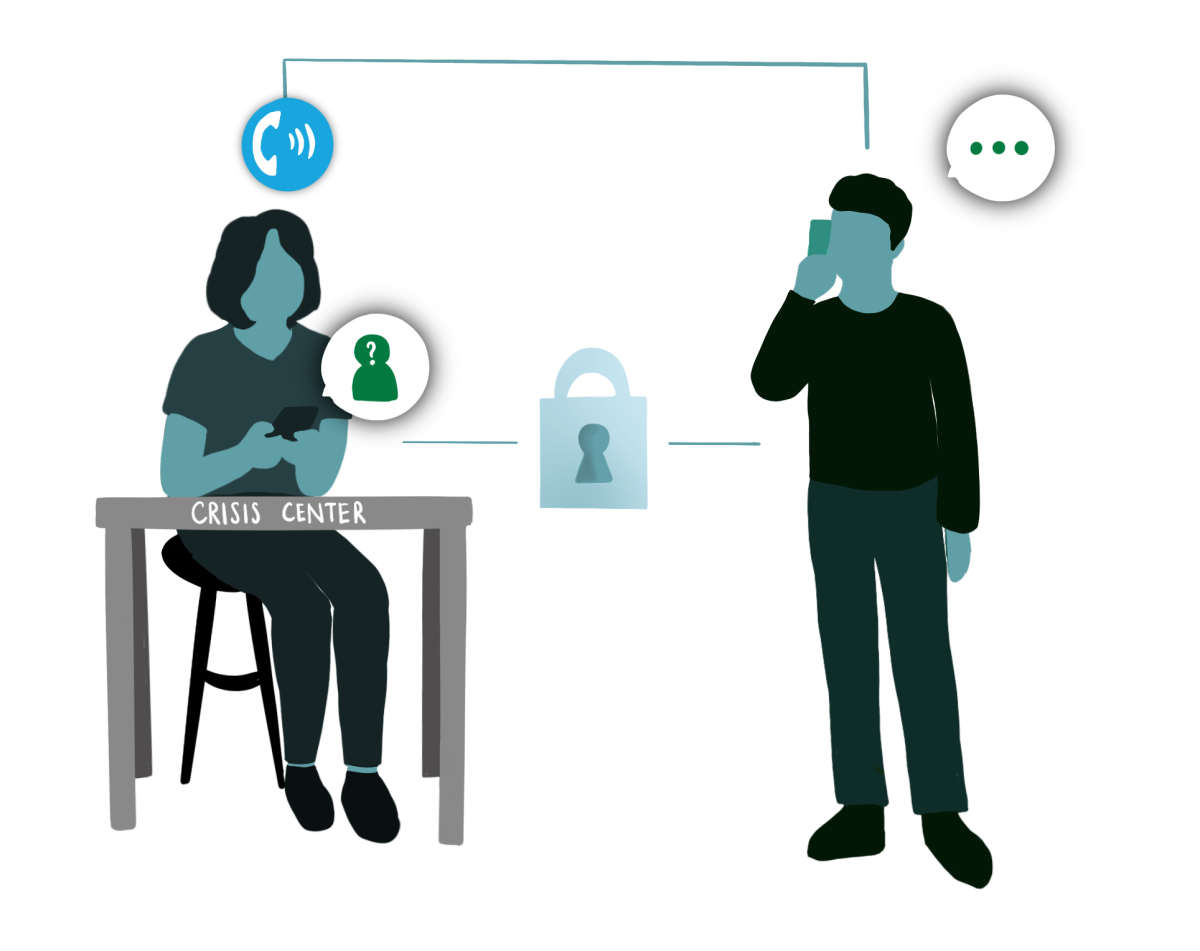FUHSD implemented the Say Something Anonymous Reporting System (ARS) this school year in partnership with the Sandy Hook Promise Initiative, a non-profit organization dedicated to preventing school violence. The ARS is a resource for individuals to anonymously report issues or threats regarding violence, bullying, suicide, depression or “any other troubling situation or behavior,” according to an email sent out by Principal Ben Clausnitzer on Oct. 20.
Earlier this year, FUHSD hosted a district-wide advisory on this new system, but it was canceled following several technological issues. However, because the advisory schedule is full and only school staff are mandated to play the video, MVHS hosted two optional sessions on Oct. 24 and Oct. 27 for students to watch the Say Something ARS informational video. Associate Superintendent of Students and Special Services Trudy Gross says that this system encourages students to be more comfortable speaking up.

“One of the things that I really like about the program is that before they even talk about the idea of the anonymous tip process, they are emphasizing the concept of seeing something and saying something,” Gross said. “We all want students to have trusted adults, whether it’s someone at school or in their life outside of school, to talk to.”
To report a tip, any student can use either the Say Something SHP app, the Say Something website or directly call the 24/7 Crisis hotline. The tip is sent to the Crisis Center, where it is triaged and categorized as a life safety or non-life safety tip. According to Clausnitzer, the severity of the tip determines who is informed to take measures.
“For example, if it’s a Title IX situation involving students, it would probably go to Trudy Gross,” Clausnitzer said. “If it’s a Title IX involving an adult and a student, it would probably go to Trudy Gross and Human Resources. And if it’s life-threatening, [it would be sent to] 911.”
However, the anonymous aspect of the reporting system poses a risk for potential fake tippers. According to Gross, the Crisis team is trained in gathering information from the tippers to gauge how trustworthy the tip is. Despite the Crisis Counselors’ efforts to filter reports, Assistant Principal Sydney Fernandez stresses that students must use it only when appropriate and not submit fake tips.
“Typically, we may have follow-up questions for the person who’s reporting to gather more information,” Fernandez said. “It’s pretty clear as we dig into it if it’s accurate or not, or if it’s false.”
Despite the canceled advisory, Gross hopes that 80 percent of students will be trained and aware of the ARS by the first semester. So far, she says the ARS has already been utilized and has proven effective in keeping students safe. According to Gross, the reporting system was able to also connect different schools that had the ARS implemented already.
“We did have one piece of information that was received that was something happening in the community connected to another school not in our district,” Gross said. “The good news was that there [were] a few [other] districts that have [the ARS]. “When [a] tip came in regarding our district, the crisis center was able to say, ‘Actually, this is related to another district.’ So we [were] aware if there was anything that we needed to do to message our students and families.”

Although MVHS implemented previous reporting systems like the Student Safety Report, the ARS is the first completely anonymous one. Besides the ARS, students can still report any concerns to therapists, school counselors, or trusted administrators.
Currently, MVHS is trying to spread more awareness about the ARS, mainly through posters with the QR code in restrooms, around the Student Union and outside classrooms. Fernandez hopes raising awareness will prompt students to use this proactive and preventative measure more when needed. Gross adds that the preventative aspect of ARS is what makes it unique, as compared to a direct reactive response.
“When we learn lockdown drills and things like that, those are reactive — something has happened and we go into lockdown,” Gross said. “[The ARS] provides a proactive way for students to provide us with information that [concerns] individual safety or school safety.”












